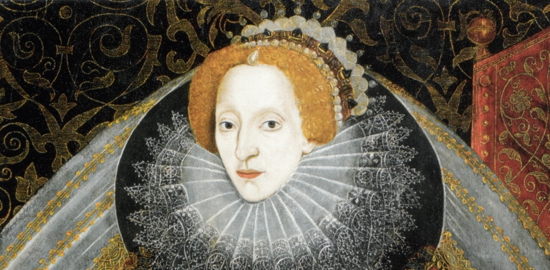Hot, Cross II

Pagans and pagan symbolism are just the thin end of the wedge when it comes to hot cross bun buffoonery. There are all kinds of other made-up stories that have found currency over the years. Let’s see…there’s the one about the medieval monks who put crosses on their bread to ward off evil spirits. There’s the one about English housewives, so dissatisfied (i.e. “hot” and “cross”) with the output of their local bakery, they were forced to make their own rolls at home.
There’s the one about Father Thomas Rockliffe, a medieval monk who gave out buns that people believed had magical, curative powers. There’s the English Widow who baked a bun every day for her son who went to sea, the peasants who strung buns up on their ceilings to bring them good luck, and the priests who fashioned their buns (steady on there, gutter thinkers) after the round stone that covered Christ’s tomb.
There are a host of historical myths too. My favorite concerns Queen Elizabeth the First, who, worried about the pervasiveness of pagan breads in sixteenth-century England (wha?), tried to ban the hot cross bun. When the ban ultimately failed she decreed cross buns could only be eaten on holy days. Makes loads of sense, no? No. Again, like so much of what passes for food history, there’s not a crumb of evidence to back the story up.
All that we know for certain about hot cross buns is that they first appeared around 1700. The earliest reference to the hot cross bun appears in an obscure English publication called Poor Robin’s Almanack, dated 1733. It reads:
Good Friday comes this month, the old woman runs, with one or two a penny hot cross buns
We can fairly assume that the hot cross bun had been around for at least a decade or two before that sentence was written. But how similar was the hot cross bun that Poor Robin wrote about to the one we know today? There’s no way of knowing.
Huh, that’s a new QEI tale. The one I’m familiar with was that the Protestants and Catholics were quarreling over who got intellectual ownership over hot cross buns and so she banned their sale except on feast days to end that internecine conflict. Which is an obviously fictional account. 🙂
That’s another great one! Thanks, GL!
– Joe